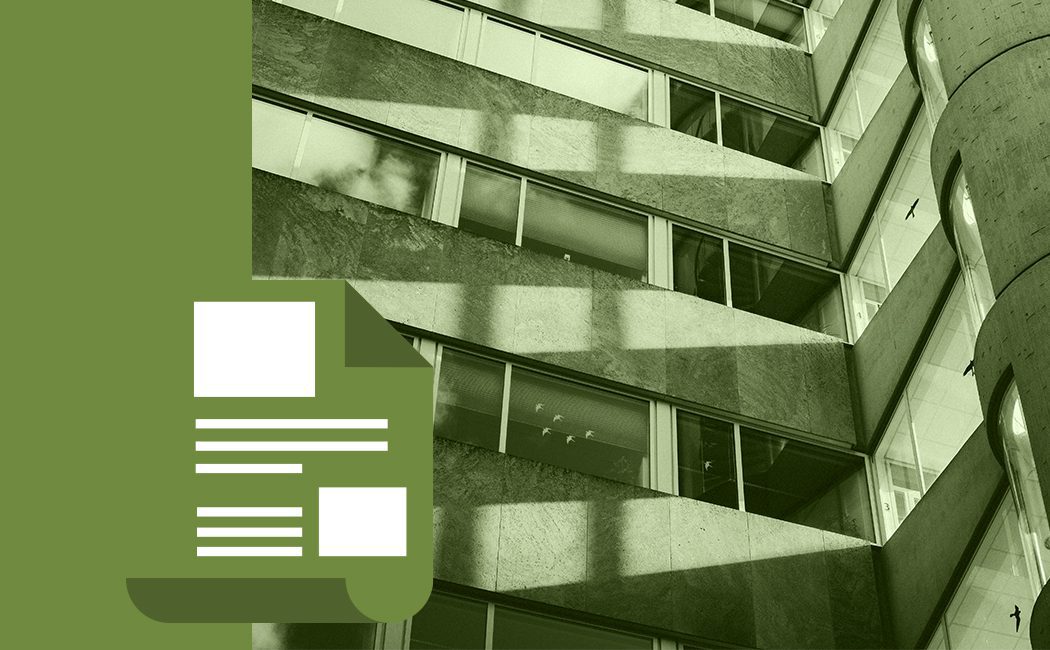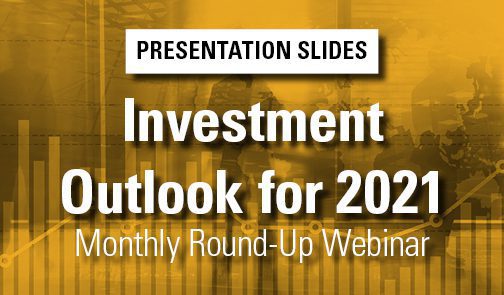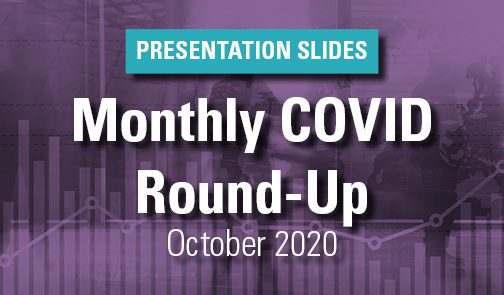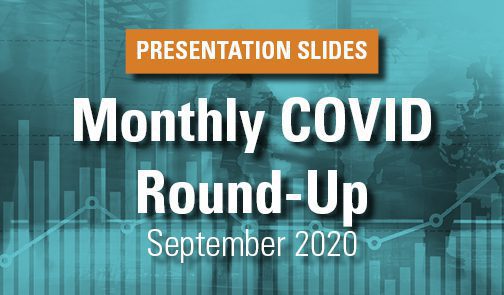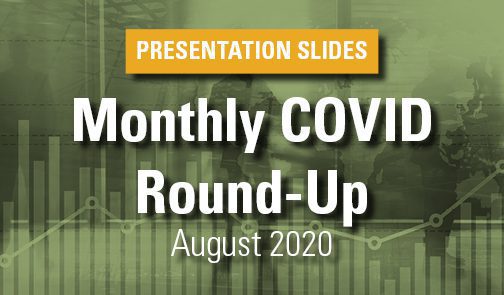Southeast Florida’s Housing Market: Current Stresses and the Way Forward

Originally published on Forbes.com
Southeastern Florida is a hot spot for coronavirus infections and is currently suffering extreme economic damage. The “Tri-County” area of Miami-Dade, Broward, and Palm Beach Counties currently has almost 60% of all the Covid-19 cases in the entire State of Florida. Even adjusting for the large share of the state’s population, which is 28% of the state, this is a stunning statistic. The primary explanation for this high concentration within the state is the influx of people from New York, where the coronavirus has been running rampant in recent weeks. The volume of air travel to and from New York is high in all three of the international airports in these three Florida counties.
The economic impact of the coronavirus on this part of Florida is severe because of the area’s dependence on tourism, international commerce, shipping, the cruise industry, and entertainment-related businesses. The hotel business itself has been devastated, and the losses at those businesses reverberate through the rest of the local economy. Every ten job losses in the hotel industry leads to six additional job losses in other sectors. This knock-on effect is setting the area up to be especially vulnerable to weak housing market conditions in the near term.
That being the case, this market is one that we at RCLCO believe will have a particularly robust recovery after this economic and health crisis resolves. Pent-up demand for a range of goods, services, and housing will likely recover at a faster pace than the nation as a whole.
Hitting Close to Home
The biggest problem homebuilders had in southeast Florida prior to the health crisis was keeping up with demand. Now, mostly limited to selling homes through the internet, home sales are a fraction of what they were just two months ago. Many of the people who would have been their buyers are now unemployed or afraid of losing income in the near future. And when a buyer does step up in this environment, they often have trouble getting a mortgage.
This region of Florida is also known for its large number of active adult communities, marketed to people aged 55 and older. This group is less concerned about mortgages (many active adult buyers in this region are cash buyers), but some of them just saw their nest egg shrink when the stock market crashed and are delaying a purchase of a home in Florida. There’s a mix of results in this niche. In our research at RCLCO, we are finding that some active adult communities are struggling more than others in this economy. Retiree-oriented neighborhoods situated within master-planned communities (and those that ARE master-planned communities) seem to be holding up better than subdivisions that are not part of a larger planned community. Our analysis suggests that there is a “flight to safety” in housing just as there is in financial markets; master-planned communities tend to hold their values relatively well in economic downturns.
Another explanation for the differences in homebuying appetite among different groups of would-be retirees is that they have had widely differing exposures to stocks. Some got into cash in recent years, and some adjusted their portfolios gradually over the last few years to reduce exposure to risk, and they were not directly affected by the decline in stock values. Others had exposure, but have a let-it-ride philosophy, expecting a rebound at some point in the relatively near future. Then there are those who were highly exposed to stocks, lost their nest egg, and feel like they have to postpone retirement or at least put off the purchase of a retirement home in Florida for a while.
How Apartment Developers are Responding
Rental developers and owners in South Florida have been reporting that April rent collections have come in at around 90%, which is better than some had feared, but May collections are expected to be lower.
The silver lining for apartment developers is that newer buildings will gain an even bigger advantage and bigger spread in rents over older buildings. Apartment buildings now in early planning stages have the opportunity to put in better HVAC and other healthy-building features. Long after the Covid crisis has passed, the impact on people’s perceptions and fears will linger, and they will prefer buildings that reduce their fears. Think: touchless technology, improved air conditioning systems, superior ventilation and air circulation, and measures to reduce the spread of illness between residents. With these upgrades, apartment buildings built post-Covid will have a competitive advantage over “2019 buildings” or older.
“We are including smart home technology in our new buildings that will allow our maintenance teams to monitor things like HVAC performance, and respond to problems, with limited physical interaction with the resident,” said Casey Cummings, CEO of Ram Real Estate.
“We are also revisiting several design features like increasing outdoor gathering spaces and creating additional opportunities for work-from-home,” Cummings added.
There will also be increased demand for single-family rentals. This will attract the subset of renters who want suburban living (millennials are starting to have kids now, driving more demand for yards, playgrounds, and good school districts), those who want a home office (which will likely increase in popularity), and those who will be drawn to a less dense living situation for health reasons (single-family homes allow for easier social distancing than high-rise apartments). There were already more single-family built-to-rent homes planned in various places in Florida, including South Florida, but this may stimulate even more of them in the years to come.
The Coming Rebound: Two Kinds Of Pent-Up Demand
Very few people believe in the “V”-shaped cycle theory anymore, ourselves included, but there is still an argument to be made that pent-up demand exists, and that it will manifest in a surge of spending at some point. And, in today’s situation, there are actually two kinds of pent-up demand. There is pent-up demand in the traditional sense of the word, which is figurative, and now there is also a literal kind. People feel pent-up (etymology: “confined in a pen”) in their own homes, yearning just to go to a coffee shop or restaurant, to go try on new shoes for the kids, or to get done with deferred dental check-ups. And the need for a vacation is bubbling up inside them. When the restrictions are lifted, even partially, there will likely be a spike in certain kinds of consumer spending. There will still be headwinds, to be sure, and the climb upward won’t match the steepness of the cliff we just fell off of, but this surge in spending will certainly lead to rapid employment expansion on a percent-growth basis. The growth in incomes (and probable rebound in the stock market) will stimulate a recovery in the housing market.
This housing market will be eventually fall back on long-term demographic trends that will drive a huge amount of demand for age-targeted communities, mixed-age communities, and multigenerational housing. There will also be strong growth in single-family homes, including those that will be built with renters instead in mind. And, demand for rental apartments of all types, urban and suburban, will likely continue to rise strongly in the long term in this market. RCLCO’s research suggests that opportunistic investors will find South Florida to be a prime region to consider in the months ahead.
Article and research prepared by Brad Hunter, Managing Director.
Disclaimer: Reasonable efforts have been made to ensure that the data contained in this Advisory reflect accurate and timely information, and the data is believed to be reliable and comprehensive. The Advisory is based on estimates, assumptions, and other information developed by RCLCO from its independent research effort and general knowledge of the industry. This Advisory contains opinions that represent our view of reasonable expectations at this particular time, but our opinions are not offered as predictions or assurances that particular events will occur.
Related Articles
Speak to One of Our Real Estate Advisors Today
We take a strategic, data-driven approach to solving your real estate problems.
Contact Us


